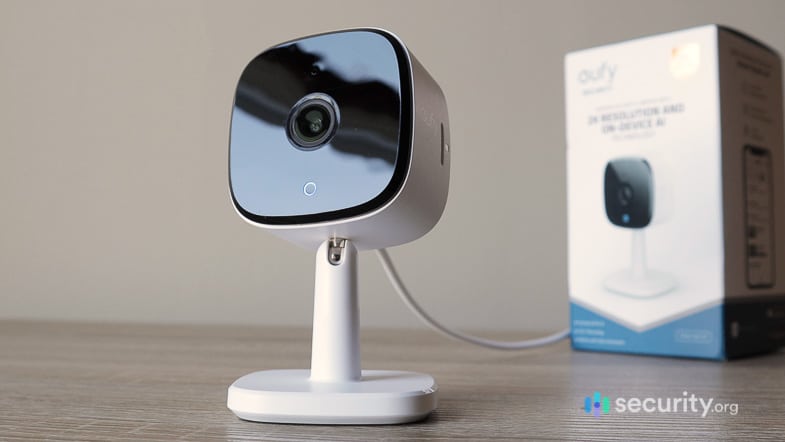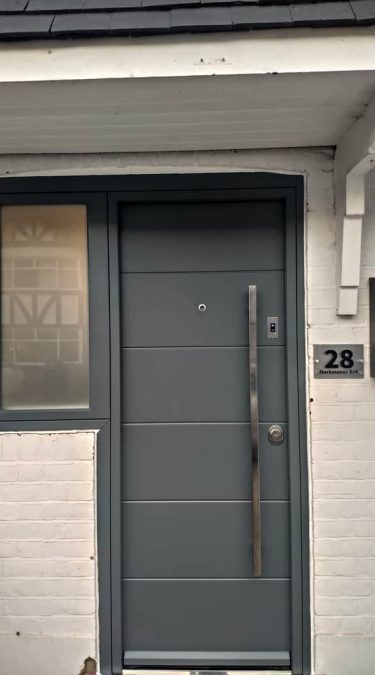
There are many things to consider when choosing a home security program. Security system components include motion detectors, sensors, and cameras. A monitoring subscription is also an important element. These features should come standard with any security system. You will have the security you desire if you purchase a system that contains all these components.
Sensors
The recent COVID-19 disruptions in various manufacturing sectors have delayed the launch of new products and the impact on the global sensor market are expected to help the market recover. MEMs-based sensors have been more popular due to their smaller size and energy efficiency. These sensors are also well-suited for the consumer electronics business. The growth of IoT will also lead to further expansion of the application space for sensors.
The global sensor market can be segmented based on the application, and can be further segmented into automotive, IT & telecommunication, industrial, electronics, aerospace & defense, and others. Healthcare holds the largest share of this market. This is due to the high safety standards.

Motion detectors
A common feature of home security systems is motion detectors. These devices detect movement and often indicate it with a small LED light. These devices can also be connected to a smart-home security system so they can send remote alerts. Some systems let you schedule motion notifications via a mobile application.
For the most effective performance, motion detectors need to be properly placed. You want to place them in areas that produce fewer false alarms. Many motion detectors come with detailed instructions to help you place them. Motion detectors should not be placed where there is a lot of foot traffic. For example, if someone breaks into a home, they will likely try to get in through a back door.
Cameras
There are many types of home security cameras available. There are many types of home security cameras on the market. Each has its own features and uses. Nanny cams have been very popular in recent years. They offer features like a fixed lens, memory card support, and an alarm trigger. This camera can also record sounds, which is great for parents of small children.
One of the most important benefits of security cameras, is their ability alert homeowners to suspicious activity. The security camera can send video to a smartphone application, which alerts homeowners about any intrusions. The camera can also monitor activity outside, making it more secure. A porch camera placed well can help improve safety.

Subscription monitoring
Some home security systems offer a monitoring subscription for a monthly fee. These subscriptions are optional, but they can be worth considering if you are concerned about false alarms. These services can alert emergency services to send police to your house in an emergency. You can reduce false alarms by purchasing a monitoring subscription.
You have the option to choose from a monitoring subscription that charges a monthly, or an annual fee. Monitoring subscriptions typically cost more than standalone devices. You can even monitor your home remotely from your mobile device with some systems, which is useful if you are on vacation.
FAQ
What Home Security Systems are Unhackable?
The definition of hacking will determine the answer to this question. Hacking is the unauthorised access to computer networks or systems. The majority of home security systems are not vulnerable to hacking because they do have software that allows others to remotely control them. They won't let anyone enter your home without permission.
Some home security systems can be hacked by anyone who has access to the internet. These systems typically require a password for operation, so anyone who knows the correct password can hack them.
What does it cost to have a great home security system installed?
A good home security system can cost about $2,500. This might seem like a lot, but it's really quite inexpensive when you consider the peace of mind that comes with having a safe and secure place to live.
Alarm monitoring: How much should I spend?
Alarm monitoring prices vary depending on how frequently you need it monitored and what type of equipment is needed. Also, consider whether you are looking to pay an all-inclusive fee or just one monthly charge.
Are there any real reasons to have a home alarm system?
Home security systems are essential if you have a home. An intruder could enter your home at any moment without warning. They'll take anything they want, including expensive electronics and jewelry. And if you leave your doors unlocked, they could just walk away with everything.
A home security system helps protect your home by alerting you whenever something happens. This includes the detection of motion and sending alerts to your smartphone. You can also record activity and view the recorded footage.
You don't have to invest in a sophisticated home security system if you prefer not to. A simple DIY camera will do the trick. These cameras let you see who is at your door and give you notification when they come or go. These devices won't prevent intruders from breaking into the home.
Can I install a security camera by myself?
Yes! If you have the necessary knowledge and skills, you can install a house alarm. If you don’t want to hire someone to do it, they will be able help you.
Can ADT be hacked?
ADT security system remains one of the most trusted home alarm systems. ADT Home Security System continues to be considered the safest option by many customers. Its reputation as a trustworthy company that protects homes against burglary and fire is what they trust.
Like all things, hackers can attack even the most trustworthy organizations. Hackers are able to infiltrate networks at any moment and steal sensitive information. Hackers can gain access to all data on your network and the ability to modify important settings. A hacker can delete files, modify passwords or shut down an entire computer system. It's important to understand that just because you cannot see something, doesn't mean hackers aren't trying to get into your house. Protect your systems with the information you need.
Statistics
- That's probably why Cove has a whopping 98%* customer retention rate. (safewise.com)
- Cove sets you free without punishing penalties and fees, unlike other security solutions that charge 75% to 100% of your remaining contract. (safewise.com)
- Depending on your insurance, 24/7 professional monitoring may qualify you for as much as 15% off your premium. (safewise.com)
- Most home security companies will charge you around 75% of the remaining term of your contract if you cancel early—and some require 100%.Related questionsWhat type of contract length can I expect from security providers?Home security system cancellation (safewise.com)
External Links
How To
How to Install a Home Security System
A home security alarm is a device that monitors the property and alerts you in case of any suspicious activity. It could be a motion detector, doorbell camera or smoke detector. A home security system is usually composed of one or several sensors (e.g. motion detectors), that send signals when there's movement or sound. The signals are then sent to a control panel where they're monitored and recorded. If there's a problem such as someone breaking into your house or other suspicious activity, the control panel sends an alert via your phone, tablet computer, voice assistant, or computer. The control panel will notify you immediately so that you can take corrective action.
You must first choose the right kind of sensors for you home in order to install a home alarm system. There are two main types, passive and active. Passive sensors don’t need batteries. Instead, they simply pick up sounds or vibrations from the environment. They can be doorbells or sirens as well as buzzers. Active sensors transmit data using electricity. Cameras and motion sensors are two examples of active sensors.
There are many brands of sensors today. Each brand has its own pros and disadvantages. Some sensors are weatherproof and others aren't. Some of them have built in speakers so that you can still hear them from outside. Some work only indoors. Others are more complex, while some offer more advanced features like night vision.
After you have decided on the best sensors for your property's needs, you will need to choose a manufacturer. This will make sure that your sensors function well together. There should be many options at your local hardware store.
Once you have decided on a brand to use, it is time to decide on how many you want. Depending upon whether they live alone or in a group, most people begin with one or two sensors. If you have plans to purchase additional sensors in the future, it might be worth buying more than you currently need.
Next, determine where you want your sensors to be placed. Do you want them close to doors or windows? Or do you prefer having them hidden away? Before you place them on your property, make sure that you have permission. You should also ensure that they don't interfere with electrical outlets or other property features.
After you've determined the location of your sensors, you will need a way that they can be connected to your control panels. You might need a power adapter for your setup. Once everything is set up, it's time to start monitoring your property.